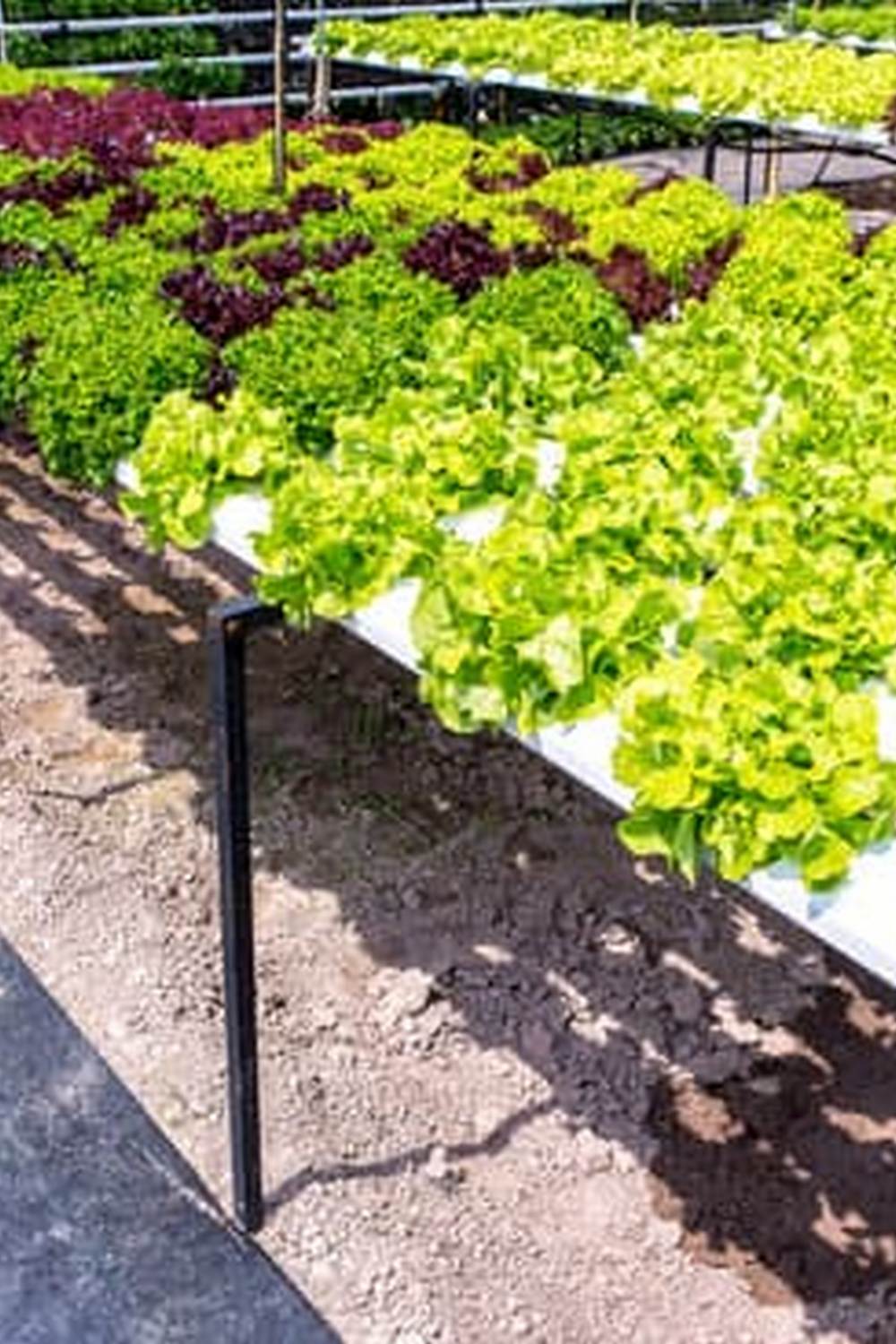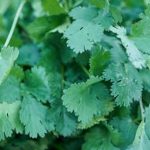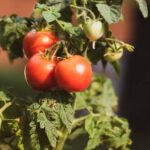Treated pine safe for vegetable gardens is a topic that often raises concerns among gardeners and homeowners. Understanding the potential risks, benefits, and best practices of using treated pine in vegetable gardens is crucial for making an informed decision about garden construction materials.
Treated pine is a popular choice for building raised beds and other structures in vegetable gardens due to its durability and resistance to decay. However, there are concerns about the safety of using treated pine in areas where edible plants are grown. In this article, we will explore the chemical treatment process of treated pine, potential risks associated with its use in vegetable gardens, and best practices for safely utilizing this material.
By delving into the chemical treatment process of treated pine, we can gain insight into the potential risks involved in using this material in close proximity to edible plants. We will also address common misconceptions about the safety of treated pine in vegetable gardens and provide information on alternative options for garden construction materials. Ultimately, our goal is to equip readers with the knowledge they need to make informed decisions about the use of treated pine in their vegetable gardens.
What Is Treated Pine?
Treated pine is a popular choice for building raised beds and other structures in vegetable gardens due to its affordability and availability. But what exactly is treated pine, and how is it chemically treated to withstand outdoor elements? The chemical treatment process used for pine involves the infusion of preservatives to protect the wood from decay, insects, and fungi, extending its lifespan when used in outdoor settings.
The most commonly used preservatives for treating pine are chromated copper arsenate (CCA), alkaline copper quat (ACQ), and copper azole (CA). These preservatives are applied through pressure treatment or immersion, ensuring that the chemicals penetrate deep into the wood fibers. Once treated, the pine becomes resistant to rot, decay, and insect damage, making it suitable for use in vegetable gardens where moisture and soil contact can lead to deterioration over time.
It’s important to note that while the chemical treatment process enhances the durability of pine for outdoor use, there are still safety concerns regarding the potential leaching of these preservatives into the soil and ultimately into any edible plants grown in close proximity. Therefore, understanding the specific chemicals used in treating pine is crucial in determining whether it is safe for use in vegetable gardens.
Potential Risks
When it comes to using treated pine in vegetable gardens, there are some potential risks and safety concerns that gardeners should be aware of. Understanding these risks is crucial for making an informed decision about whether or not to use treated pine in your vegetable garden.
Chemical Leaching
One of the main safety concerns associated with treated pine in vegetable gardens is the potential for chemical leaching. The chemicals used to treat pine, such as chromated copper arsenate (CCA), have the potential to leach into the soil over time.
This can result in the uptake of these chemicals by plants, which can then be consumed by humans. While studies have shown that the risk of chemical leaching from treated pine may be low, it is still a valid concern for many gardeners.
Health Risks
Another safety concern related to treated pine in vegetable gardens is the potential health risks associated with exposure to the chemicals used in treatment. Inhalation or ingestion of these chemicals can lead to various health issues, including skin irritation, respiratory problems, and even more serious conditions with prolonged exposure.
Environmental Impact
In addition to the potential risks to human health, there are also concerns about the environmental impact of using treated pine in vegetable gardens. Chemical leaching from treated pine can contaminate surrounding soil and water sources, potentially harming local ecosystems and wildlife.
Considering these potential risks, it is important for gardeners to carefully weigh the benefits and drawbacks of using treated pine in their vegetable gardens. While treated pine may offer durability and longevity, alternative options may provide a safer choice for both human health and environmental sustainability.
Is Treated Pine Safe for Vegetable Gardens?
When it comes to the question of whether treated pine is safe for vegetable gardens, there are often many misconceptions and concerns. Treated pine refers to pine wood that has been chemically treated to increase its durability and resistance to decay. The chemical treatment process involves using preservatives that can potentially leach into the surrounding soil, raising questions about the safety of using treated pine in vegetable gardens.
While there are valid concerns about the use of treated pine in vegetable gardens, it is important to note that not all treated pine poses a significant risk to plant health or human safety. With proper precautions and understanding of the different treatment processes and chemicals used, it is possible to safely use treated pine in vegetable gardens without causing harm.
One common misconception is that all treated pine poses a danger to vegetable gardens due to the chemicals used in the treatment process. However, not all chemical treatments are created equal, and some types of treated pine are specifically designed for use in contact with soil and vegetation.
ACQ (alkaline copper quaternary) and Copper Azole are two examples of chemical treatments that are considered safe for use in vegetable gardens. These preservatives have been deemed safe by the Environmental Protection Agency (EPA) for such applications.
| Treated Pine Type | Considered Safe for Vegetable Gardens |
|---|---|
| ACQ (alkaline copper quaternary) | Yes |
| Copper Azole | Yes |
Benefits of Using Treated Pine in Vegetable Gardens
Treated pine is a popular choice for constructing vegetable garden beds due to its durability and longevity. Here are some benefits of using treated pine in vegetable gardens:
1. Longevity: Treated pine is resistant to rot, decay, and insect damage, which makes it a long-lasting material for vegetable garden construction. With proper maintenance, treated pine can provide years of use without needing replacement.
2. Durability: Treated pine is able to withstand the elements, including moisture and UV exposure, making it a sturdy option for outdoor use. This durability ensures that the vegetable garden beds can maintain their structural integrity over time.
3. Cost-effectiveness: In comparison to other materials, such as cedar or redwood, treated pine is a more cost-effective option for constructing vegetable garden beds. This makes it an attractive choice for budget-conscious gardeners looking for a durable and reliable material.
When using treated pine in vegetable gardens, it is important to take certain precautions to ensure its safety for growing edible plants. By following best practices and guidelines for safe usage, treated pine can be a suitable option for constructing vegetable garden beds while prioritizing the health of the plants and the individuals consuming them.
How to Safely Use Treated Pine in Vegetable Gardens
When using treated pine in vegetable gardens, it is important to take certain precautions to ensure the safety of both the plants and those who will be consuming them. By following best practices for construction and maintenance, as well as taking necessary precautions, you can minimize any potential risks associated with treated pine.
Choose the Right Type of Treated Pine
Not all treated pine is created equal, so it’s important to ensure you are using a type that is safe for vegetable gardens. Look for wood that has been treated with chemicals that are labeled as safe for use around edible plants. Copper-based treatments, such as ACQ (Alkaline Copper Quaternary) or Copper Azole, are considered to be safer options for vegetable gardens.
Use a Liner
To create an additional barrier between the treated pine and your soil, consider lining the inside of your raised bed or garden box with a heavy-duty plastic liner. This will help prevent direct contact between the wood and the soil, reducing the risk of chemical leaching.
Maintain Regular Inspections
Regularly inspect your treated pine structures for signs of wear or deterioration. Any cracks, splinters, or areas where the treatment may be wearing off should be addressed immediately to avoid potential contamination of the soil and plants.
By taking these precautions and implementing best practices when using treated pine in your vegetable garden, you can help ensure that your garden is both safe and productive. It’s important to prioritize the health and safety of your vegetables while also enjoying the durability and longevity that treated pine can provide for your garden structures.
Alternative Options
When considering the construction of a vegetable garden, it’s important to explore alternative options for materials that may be safer than treated pine. While there are benefits to using treated pine, such as durability and longevity, some individuals may have concerns about potential risks associated with the chemicals used in the treatment process. Exploring alternative materials can provide peace of mind for those who prioritize the safety of their vegetable garden.
One alternative option for vegetable garden construction is using naturally resistant woods, such as cedar or redwood. These types of wood contain natural oils and tannins that make them more resistant to decay and insect damage, eliminating the need for chemical treatment. Additionally, using composite materials made from recycled plastic and wood fibers can be a sustainable and low-maintenance choice for vegetable garden beds.
Another consideration for safer materials in vegetable garden construction is using non-wood options such as metal or PVC. Metal raised beds are durable and long-lasting, providing a sleek and modern look to the garden. PVC (polyvinyl chloride) can also be used to create lightweight, affordable, and easily assembled raised beds for vegetable gardening. Both of these options eliminate concerns about potential chemical leaching from treated wood.
Ultimately, exploring alternative options for vegetable garden construction can offer a variety of materials that are both safe and effective for growing healthy produce. By understanding the benefits of different materials and weighing potential risks, individuals can make an informed decision that aligns with their priorities for their vegetable garden.
| Alternative Materials | Benefits |
|---|---|
| Cedar or Redwood | Natural resistance to decay and insect damage |
| Composite Materials | Sustainable, low-maintenance option |
| Metal or PVC | Durable, long-lasting, eliminates concerns about chemical leaching |
Conclusion
In conclusion, the use of treated pine in vegetable gardens is a topic that requires careful consideration and informed decision-making. While there are potential risks associated with the chemical treatment process, it is essential to recognize that treated pine can still be safe for use in vegetable gardens when used properly. Understanding the treatment process and being aware of safety concerns is crucial in ensuring that the health and safety of your vegetable garden are not compromised.
It is important to acknowledge that treated pine offers several benefits for vegetable garden construction, including durability and longevity. When used responsibly and in accordance with best practices and precautions, treated pine can be a viable option for those looking to build raised beds or other garden structures.
By taking the appropriate measures to minimize potential risks, such as using a barrier between the wood and soil, gardeners can enjoy the advantages of treated pine while maintaining a safe environment for growing vegetables.
For those who may have reservations about using treated pine in their vegetable gardens, there are also alternative options to consider. Exploring safer materials for garden construction, such as naturally rot-resistant woods or composite materials, can provide peace of mind for those seeking an alternative to treated pine. Ultimately, by weighing the potential risks and benefits, individuals can make an informed decision about whether treated pine is the right choice for their vegetable gardens.
Frequently Asked Questions
Is Treated Pine Safe for Veggie Garden?
Treated pine may not be the best option for a veggie garden. The chemicals used to treat the wood could potentially leach into the soil and be absorbed by the vegetables, posing a health risk.
Can You Use Treated Lumber in a Vegetable Garden?
It’s generally not recommended to use treated lumber in a vegetable garden. The chemicals in treated wood can potentially contaminate the soil and harm the plants, as well as pose a risk to human health.
Is Treated Pine Still Toxic?
Treated pine is still considered toxic due to the chemicals used in the treatment process. While there are different types of treatments available, it’s important to exercise caution and research thoroughly before using treated pine in any garden setting.

If you’re looking to get into vegetable gardening, or are just looking for some tips on how to make your current garden better, then you’ve come to the right place! My name is Ethel and I have been gardening for years. In this blog, I’m going to share with you some of my best tips on how to create a successful vegetable garden.





